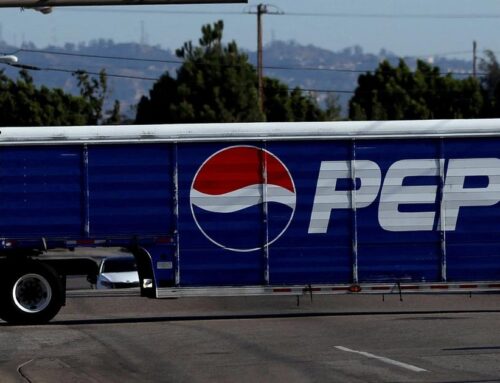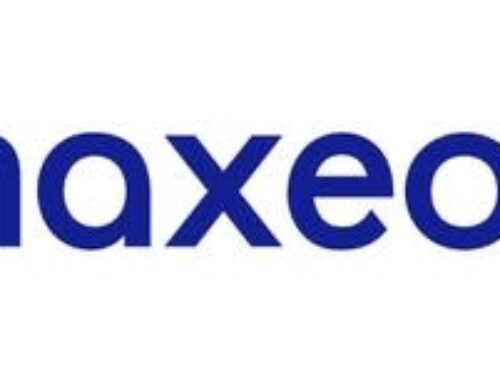CoreWeave’s streak of deals continues with $14 billion agreement with Meta for AI compute
September 30, 2025
CoreWeave signed a deal to provide up to $14.2 billion of compute to Meta on September 25, according to a filing released this morning. The pact lasts through December 14, 2031, and includes an option for the Zuckerberg-run company “to materially expand its commitment through 2032 for additional cloud computing capacity.”
This news comes on the heels of last week’s announcement that CoreWeave was expanding its agreement with OpenAI to train its models, which is poised to add up to $6.5 billion to its preexisting contract with the GenAI developer.
Separately, CoreWeave also unveiled a $6.3 billion pact with Nvidia to supply it with any unused cloud computing capacity through April 12, 2032, earlier this month.
But by the looks of these deals that CoreWeave and its peers have struck with hyperscalers, all that compute may be spoken for.
More Markets
Oklo whipsaws amid BofA downgrade, accelerated future review process by the Nuclear Regulatory Commission
Shares of Oklo were volatile in early trading, falling as Bank of America downgraded the stock to “neutral” from “buy” before getting a short-lived jolt after the nuclear technology company said regulators accepted a key design report faster than anticipated. The stock is down about 3% as of 10:05 a.m. ET.
“Valuations now embed deployment ramps and discount rates we view as unrealistic at this stage of SMR [small modular reactor] adoption,” BofA analyst Dimple Gosai wrote. “While we remain constructive on Oklo’s differentiated build-own-operate model, pipeline conversion, HALEU recycling, and DOE/DoD contracting, we view near-term risk/reward as balanced.”
She also raised her price target to $117 from $92.
Separately, the US Nuclear Regulatory Commission accepted Oklo’s Principal Design Criteria topical report “in just 15 days, compared to the typical 30–60 days following submission,” the company shared in a press release, noting that “recent legislation and executive orders have called for the delivery of more nuclear power for clean, reliable energy on accelerated timelines, and this is how it’s done.”
Per the company, the PDC report establishes a regulatory framework for future reactor licensing and design activities, and once approved, effectively streamlines Oklo’s deployment of advanced reactors by reducing unnecessary steps in the licensing process.
In a note published on Monday, Barclays analysts wrote that “government approval of each step of the process is one of the largest moats in the space,” especially considering the “prolonged, expensive, and complex” regulatory framework under the NRC.
Oklo is up 65% in the past month, riding a wave of investor enthusiasm for clean power plays as the market anticipates a surge in AI-related energy demand. Earlier this morning, shares were under pressure after BofA cut the stock to “neutral” from “buy.”
Separately, the US Nuclear Regulatory Commission accepted Oklo’s Principal Design Criteria topical report “in just 15 days, compared to the typical 30–60 days following submission,” the company shared in a press release, noting that “recent legislation and executive orders have called for the delivery of more nuclear power for clean, reliable energy on accelerated timelines, and this is how it’s done.”
Per the company, the PDC report establishes a regulatory framework for future reactor licensing and design activities, and once approved, effectively streamlines Oklo’s deployment of advanced reactors by reducing unnecessary steps in the licensing process.
In a note published on Monday, Barclays analysts wrote that “government approval of each step of the process is one of the largest moats in the space,” especially considering the “prolonged, expensive, and complex” regulatory framework under the NRC.
Oklo is up 65% in the past month, riding a wave of investor enthusiasm for clean power plays as the market anticipates a surge in AI-related energy demand. Earlier this morning, shares were under pressure after BofA cut the stock to “neutral” from “buy.”
Retail traders rush into Wolfspeed as it exits Chapter 11 bankruptcy
Wolfspeed is in the midst of completing a very peculiar double act.
Shares of the embattled silicon carbide semiconductor maker are roaring higher in the premarket session after the company announced after the close on Monday that it has successfully completed its restructuring process and is exiting the Chapter 11 bankruptcy process.
The stock also nearly doubled on July 1 after it filed for Chapter 11 bankruptcy!
As of 8:15 a.m. ET, Wolfspeed is among the most mentioned and most positively mentioned tickers on Reddit’s r/WallStreetBets over the past 12 hours, per SwaggyStocks data.
Betting on a very beaten-down company — or outright providing the fuel for a second lease on life — has been a popular strategy among retail traders in search of asymmetry. Opendoor Technologies might be the most recent example of this phenomenon, but the best one is probably Hertz, which retail traders flocked to during the pandemic in 2020 even as the car rental company filed for Chapter 11.
On Monday, the company issued new shares and canceled its old stock as part of this restructuring plan, significantly diluting its preexisting shareholder base.
“Through the restructuring process, Wolfspeed has reduced its total debt by approximately 70%, with maturities extended to 2030, and lowered its annual cash interest expense by roughly 60%,” according to its press release. “With a self-funded business plan supported by free cash flow generation, Wolfspeed is well positioned to leverage its vertically-integrated 200mm manufacturing footprint — underpinned by a secure and scalable US-based supply chain — to drive sustainable growth.”
Denmark revises GDP growth lower as key exporter Novo Nordisk struggles
Denmark’s economic growth has been revised lower amid a slump at the country’s largest company, Novo Nordisk.
According to Statistics Denmark on Tuesday, the country’s second-quarter GDP growth was revised down to 1% from the previously reported 1.3%, due to updated foreign trade data. The revision follows recent forecast cuts from both the Danish central bank and the government, both citing a pharmaceutical export slowdown as a partial driver.
Firefly Aerospace falls after losing a rocket stage during a preflight test
Firefly Aerospace shares plunged as much as 13% in after-hours trading on Tuesday after the company disclosed an incident that resulted in the loss of the rocket stage during a test at its facility in Briggs, Texas.
“During testing at Firefly’s facility in Briggs Texas, the first stage of Firefly’s Alpha Flight 7 rocket experienced an event that resulted in a loss of the stage,” Firefly shared in a statement. The company said that all personnel were safe and that it’s assessing the impact to its stage test stand, with no other facilities affected.
The mission for the tested vehicle, which the rocket maker is preparing for Lockheed Martin, is planned to launch no earlier than Q4 2025.
Firefly, which made the headlines after successfully landing its Blue Ghost robotic spacecraft on the moon in March, has been struggling recently after a series of failed launches, including its most recent Alpha launch in April, which exploded during a preflight test.
Latest Stories
Sherwood Media, LLC produces fresh and unique perspectives on topical financial news and is a fully owned subsidiary of Robinhood Markets, Inc., and any views expressed here do not necessarily reflect the views of any other Robinhood affiliate, including Robinhood Markets, Inc., Robinhood Financial LLC, Robinhood Securities, LLC, Robinhood Crypto, LLC, or Robinhood Money, LLC.
- Privacy Notice
- Disclosures
- Terms and Conditions
- Editorial Standards
- Masthead
- Your Privacy Choices
- Advertising Disclaimers
©2025 Sherwood Media, LLC
Search
RECENT PRESS RELEASES
Related Post




